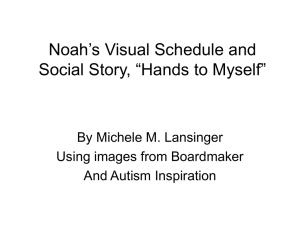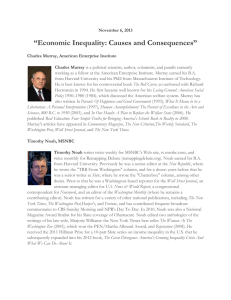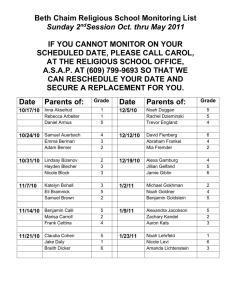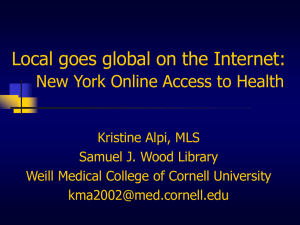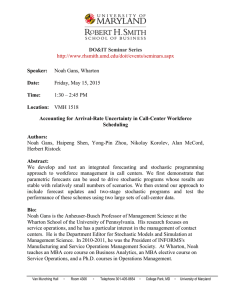5745 ••• VOLUME42 1984-1985
advertisement
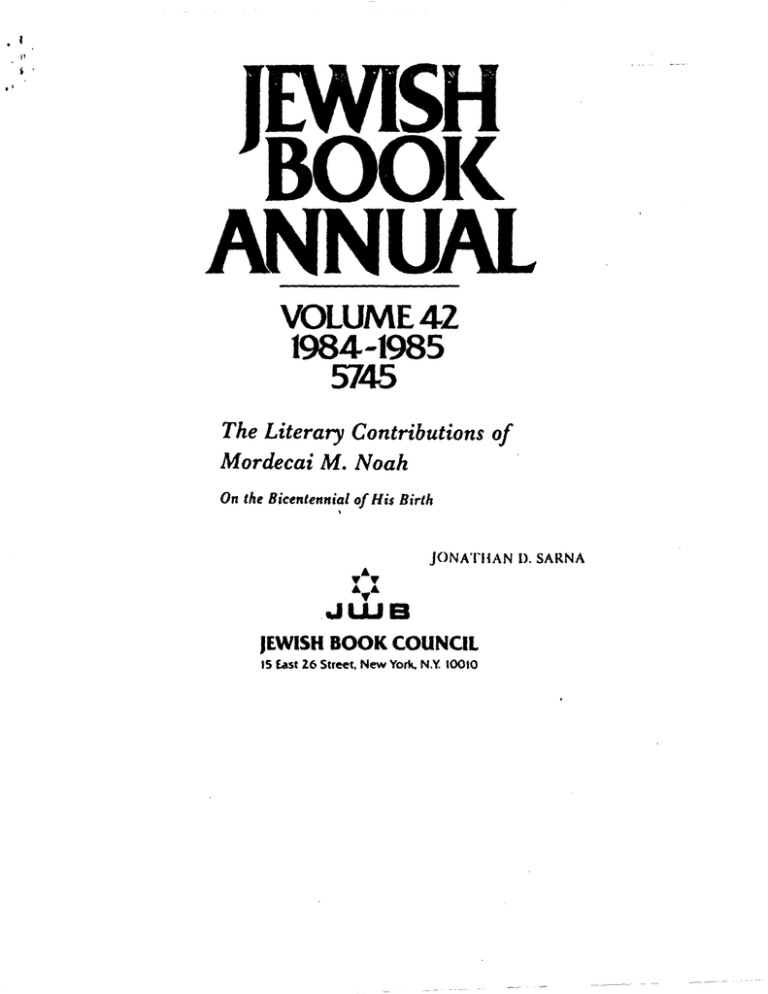
• f
) '
t I
VOLUME42
1984-1985
5745
The Literary Contributions of
Mordecai M. Noah
On the Bicentennial of His Birth
'
•••
•••
JONATHAN 1>. SARNA
~UJB
JEWISH BOOK COUNCIL
IS East 26 Street, New York. N.Y. 10010
JONATHAN D. SARNA
The Literary Contributions of
AfordecaiAf. lVoah
On the Bicentennial of His Birth
~Till· WRITER OF TillS 1':\RA<;RAI'II," wrolc James Recs in IH4!">,
vn·mt·nthns Mr. Noah as a grcatlitnary and poli1icallion ... lk
told tlw lx•st story, rounded the hest st•lllenn·, and wrott' the best
plav ofall his contemporaries. lk was the lift· and spirit illld <JIIOIation of all t·in·lcs. As t•clitor, critic ami au1hor, he was looked up
to as an oradt•. fl t• ,,·as, in shorr, the itlom·ou.~ lwmo of thai day. His
wit w;ts t'\'t·rywht•n· rq>ealed. and his kincl-heanccln<"ss- which,
by the way. to this very hour has never forsakt•n him- was the
1
I hellll' of every ton gut•."
Rt•t•s was an i11timatc of Mordecai Noah's. and his
dtarant·ril<llioJt, wrillt'll while Noah was still alive, must therelim• hl' sonwwhat cliscounted. Still. his words hear dose rt·ading.
For Recs realized, even i11 his adulario11, 1hat Noah's n·pu1a1ion
restt•cl rhicll}· on his stylt• ancl'pt•rsonality. Samuel Lockwood put
ir well: ~Noah was a man of talt•nls ralht•r 1han genius.":! His
raflonrs, howt•n·r. srood him in good stead and he exploitt·cl them
to lht· hill. Conse<fU<'Illl}·. his name wnriruu·s to t'licir srniks of
n·mgnition 1\\'o full n~Jtturies after his hinh.
l\lonlt·cai Noah ( 17H!i-1 H!i I) hdong<'cl lo thai first gt·m·ralion
of nativt·-horn Am<"ricans who grl'w up in thl' y<•ars fi,lfowill!{ lhl'
Rt•\olution. When hl' was young, hl' knl'w smnt.• of the Founding
Fat hl'rs persoJtally, hut hl' had IHI memory of his <Otllll rv as ht·ing
anyrhing hut polilic;tlly inclt•t><'lldt•Jll. Like so many olhns of his
day, he chaished tht• dn•artl !hal Arm•rica would one da~· also
I j;ttllt'> Rt't'>. '11~t·llrtllllll/tt A11thon of Amrnw (l'hil;ult·lphi;t. IIH!'>I. p. 110.
:! S;nuud l.tKkwoml. "l\lotjnr 1\1.1\1. !'>:o;th." l.tf'/'"""/1\,\lttJ!tWIIt'of l.tlrltlllllr.Sn,.,". f/IUI/:'dllrtllltlll, I ( ll!till). P· liill.
IH9
190
II· \11~11 l\001\ \ \ \ I \I
;tchit'\'t' full <ult ural indt•penclt'IK<.'. Pol it ic·s and c ult un·. n·utral
t'unc·t·rns ofth<' voung Rqmhlic, ht•camc• his n·nu·al cOJit'c'ms as
wdl.
Noah's c•arly litt•rary nmt rihlllions f()('us around 1ht·sc· 1win
pn•nrwpations. As a )'otlllg m;lll in his lwt·ntic·s,lw first achit'n·d
n.·pure in the fidel of politi<:al journalism. lie wrot<· mpv on ht·half of Simon Snyder. Dernorratic.·-Repuhlkan nmdidatc• for govc•rnor uf Pt•nns)'lvania in IHOH. He aulhorizt•d a pscudonymous
pamphlet aii<Kking New York eovt·rnor lk Will Clinton\ hid
for tlw pn·sidt•tKy in I X12. And lw puhlisht'd a notc·wort hy sc·ric•s
of artidt•s in the ClwrlrJ/tm (.'it_v (;azrllt', in. I HI :l, that hclpC'd C'Xpost• sontt' attt•mptc•d political c·hinm<T}' 011 the pari of South
Carolina's govt·rnor, Joseph Alston.:1
At til(' same timt.•, Noah aurhon·d th<' first of his play~. I k had
long ht•t•n a dc•volt't' of thc.·thc:att•r ("I had an c•arly hankcrirtg for
tht•national drama," he later aclmirtl'cl, "a kind ofju\'C'nilc· patriotism.""1). and ht· r.uhscquc:ntly ht·camc· an important nitic Hut
MTht• Fortn•ss of Sorrelllo," and "Paul and Alexis" were hardly
great works. The: former, No;th himst'lf later n·markcd, lw was
Mal most ashanl('d to own."'' Tlw lallt'l", ht· exfuscd as being mc.·n·h·
a favur wrillcn for a fri<.•ml. The plays ht• \Hotc· when he was
oldt•r, all of thc·m devoted 10 Amcrifan tht·mes, proved somc.·wh;ll mon• enduring, and won Noah a plan· anumg th<· front
ranks of c•arly American d rarnatists. In on<·, "She wmdcl Bt• a
Soldic.•r, or the Plains of Chippt•wa," he introclun·cl onro til<' stage.·
a n·m<trkahly herwvolent lndi<tn, onc• brave c.·nough to nitidz<·
Ill(' whitt• man's cnrroafhllleiiiS, and t•clucatt•cJ t•nough to speak
perft•<·tly standard English. In another, "Marion, or tlw IINo of
Lake.• Ceorge," h<· hroarhed a sul~jc.·ct ignon·d in rnosr literary
· tn·armt•flls of the: American R<.·volurion, the tragc·cly of wnllining ;sllc.·gianrcs that n·nt families asunclc.•r, pirring hrothcrs
against on c.· a not her. Both plays, ancl other Noah plars too, enjoyed long ancl sm·c·essful runs. Yet Noah himst'lf rcalizc.•d, hy the.·
tinw he.• was middle-aged and no longer writing plars. that his
wt•rc.• sonwwhat "amateur" pmdll(:tions, <:ompoSt·d at odd mo:~
Jouath<m H. Sarna, }tulwmi1111 Jrw· 71, Trw U'mM.• of Mmdrmi l\'oah !Nt•w
\'mk, I!IHJ), PI'· 1-l·t.
·I Nu01h to
Willi~11111luntap
(July II, IH:I2).n·prilllt'd iul'ublimtwrt.\ oftlu· .1mnl·
li (I H!l7), fl· I IIi.
rtlll./~'ll'i.J, 1/i.lltlriml Sorif~Y.
5 lhid, p. I I H.
rnc·nts ill IIH' all-too-rart• imt·rstin•s ht·twt•t•Jl political cmc ast•s
andjoumalistic· dt•adlines. Others,lw thought, had done lwlln."
IllS T/lAVI·.LS
Noah's most signifirant nmtrihution to American lc•rrers was
his hook ol 1r;m•ls. puhlished in I HI 9. The• volume was concciwd
while· Noah was sc•rving as Anwriran con sui ro Tunis, a post he
n·n·i\'t'd in IS I :t "I am t;iking nou·s f()r writing a Book ... ," ht'
inflmtlt'd his friend l>;l\·id Bailie· Wanlc•n in I HI !i, "I wish to add
my poor milt· lo,th<' store of Arut·rican litcrawrc." 7 By tht· time·
the· hook appcared, hoWt'\'('r, it haclwken 011 an additional furl<'·
lion. Soon ahcr writing to Warden, Noah found himself recalled
home for reasons -among them "the religion which you prokss" ---which he consiclt'n.·d to he· grossly unjusl. In pan, at least,
II<' tiSt~d his hook, "as a work of explanation and cldc·nce. nH Trmwls
in/~nKia11tl, Frrma, Spa it~, tmd the llarblll)' Stalt'.\ is thus a mixture of
1ravdogue and apologia. The first hook of its kind hy an American diplomat, it won c:onsiclerahle acdaim ancl went through at
lt>ast two t•ditions.
Noah's travelogue indudccf all the stand;trd motifs of the
gc·nrc: injury Oil the road, a near rohht•ry, and lusty moments of
cmharrassnwnt. Noah rcnclcrcd typical judgements on each of
the countries he visited. England, he felt, should l>t' considered a
"pennarwnt t•rlt'my," ever eager "to check our progress or mar
om nat ion a I prosperity." France, on the other hand, left not a
single unfavorable impression: "no drcumstancc ... served to
lowt·r the respect which is generally entt'rtained towards this
country and its inhahit<Vlts." As for Spain, he was very critical of
its "indolence" and "pn.:judit:cs." He urged the country to "tolerat<· all religions, (to] call bac:k the Moors and Jews," and to free
her South American colonies. These were all regular .Jeffersonian scntimems and probably evoked no surprise from readers. 9
What did distinguish Noah's volume from other contemporary
works of its type was the aucntion devoted to Jewish affain;.
li !hid, p. I 15; S:~rna,farluonian]ru', pp. ti-M, 12-13, 47-fll.
7 Noah ru llavid H. Wndeu (Ft·hruary 10. 11115), Wardt·n l';tpc·rs. Lihrary of
( :ongn•ss.
H MnrdC't·ai M. Noah, Trat,£1 m Engla11d, Frnr1u, SfHlill at~d thl' /ltnlm'y Slt1U.1 (Nt•w
York. 11-119), p. i\'.
!I Ibid, pp. 5!!, 125, 241.
192
jt:WISif IIIKIK ANNIIAI.
Right from page one, Noah expressed his desire ro ohrain Nthe
most authentic information in relation to the situation, char·acter,
resources, and numerical force of the Jews in narhary. part of
whom had been banished from their colleges at Cardova, and
parts were emigrauts from judea and Egypt." 111 Later in the book
he described with obvious care different sectors of the Jewish
community - praising some, condemning mhers - but generally laying blame for any Jewish vices at the feet of the Islamic
rulers. He pointed out that jews hungered after money in North
Africa because it purchased "protection and toleration." He suggested that emancipation and mild treatment might make .Jews
far more useful and beneficial citizens. 11
Tht• apologetic part of Noah's hook- the cxkndcd defense of
his wnsulship in general and particularly· his handling or
mishandling of a secret mission aimed at freeirig American prisoners in Algiers- holds, at first blush, substantially less interest.
Noah had published much of the mat(•rial in his Correspondence
rlnd Documents Relt1tive to the Attrmpt to Nfl(otiatr for'the RelmJe of IM
American Captives at Algiers (1816), and his plea for his "unfortunate people. whose faith and coustancy alone have been the cause
of so much tyranny and oppression; who have given moral laws
to the world, and who receive for reward oJ)probriurn and
insult," reeks ofself~pity. What does make the defcl1se significant
is the simple fact that Noah undertook it at all,let alone in so spirited a fashion. As "a citizen of the United States, protected by the
constitution in my religious as well as in my civil rights," he served
notice that he would fight, fight publicly, and fight as a Jew, for
religious equality .' 2 '
This Jewish self-assertiven~ss, expressed even more frequently
in Noah's later writings, had lasting significance. The fact that a
public figure like Mordecai Noah so openly declared himself a
Jew, both by expressing his interest in other .Jews and by defending himself against religious attacks, legitimated and encouraged similar ac.ts of self-assertion by other .Jews, and indeed
other minority group members. Noah, of course, was not unique
in assuming a forthright stance, nor was he the first American
Jew to proudly defend his religion in print. He did, however, re10 lhid, p. I.
II !hid, pp. 21!!1, 307·3t4.
12 lhid, pp. 376·381; Sarna,jacksonitmjnu, pp. 31-32.
I
I
ceive far more publidty for his defenses of the.· faith than did any
other Amerkan Jew of his time.
JOURNAUSTIC ACTIVITY
Despite.~ the success of his Travel5, Noah wrott~ no other books.
He compiled a volume of his newspaper columns ( 1820, rev.
I H45), and he published an American edition of Moses Samuel's
translation oft he Book of}asher (I !HO). But otherwise he confined
himst·lf 10 pam\>hlcts, published lectures, and the forum he liked
hest: tht' pn~ss. ~During his long tenure on New York's newspaper row, Noah t•dited some of America'§ leading dailic!l: The New
t'ork Natunwl Advocall', Thl' Enquirl'r, and The F.vming Su1r. He also
edited the Sunda_v Timl's and Noah's Weekly Me.wmgrr, one of the
first Sund<i}' newspapers in America, and one designed to be a
family newspaper, Mreceivcd and approved in circles where no
Sunday publication had penetrated before." 14 Noah rarely conn·rned hirnsdf with two trends revolutionizing American journalism in his day: increasing speed and de<:reasing price. He left
the swops and the scandal to the Sun and the llrrald; meanwhile,
he conc<.•ntralt·d on quality. "It is the business of a newspaper," he
wrote, wto tell its readers of everything 11ew, which transpires in
the world, and more especially of that sort of tli!WtltJ$, which c;u·ries with it utility and value ... It is our business, as editors, to
make known such occurrences as shall have an influence, and a
beneficial influence too." 15
Noah remains bc.•st known for his Jewish writings: his published lectures, pronouncements, and newspaper articles that
aimed 10 improve both the image of Jews in the eyes of Gentiles,
and the condition of Jews worldwide. As early as in his Correspmrdnra tmd DocummL~ (1816), echoing themes he had previous!)· t•xpresscd in private letters to government officials, Noah
trumpeted the loyalty and patriotism of American Jews:
The citizens of the United States, who profess the Hebrew
I :l For a n11nplelt' bibliography of Noah's wrirings, st"f.' jamb Blanfk, Bibliowaplly
of Amnmm Utmllurt (New lfaven, 197:i), vul. 6, pp. 447-454; wirh lhf' several
t·orrt·nions noled in Sarna. jarksonim1 jro•, p. 21 r,.
14 Stmday Timtl mul Naalr's Wuk~y Mmn1gtr (March 28, Ul52), p. 2.
I !l Nn•• York EnqUir" for 1M Country (NovC"mhcr 17, 1827), p. 2; Sarna,jaduonian
J~w. J>P· 5-6, 35-38, 77-80, 97-99.
•
194
rdigion, havt:• n~t·rited, h)' their ext·mplary mndun. tilt'
rigl11s which they c.·njoy. Ttwy havt· hc.•c.·u the <onstant,
unw;1vc.•ring friends of the union; they took an anivt· part in
ttw war of the.· rc.·vohuion, which sec:un·d, and ought to sc.··
nne to them, an equality of privileges, in common with tht'
rc.•st of their fellow citizens. Forty years of fn•t'dom havc.•
strcngthenc.•d and secured their auachnwnt and clt·votion to
a c:ountry. which had broken clown thc.· harriers of
supc.•rstition, in prodaiming ;mel perpetuating rivil and rt'ligious liht•rty. 11 ;
Noah offc.•rcd a more length}· t•xposition on .Jc.·ws - complete.·
with lt.•anwd footnotes- in his Di.1cmmr J>l'!il•nnl at tlu· Col/.ll'tm
tim1 of tht• [Smmd Mill Strl'rt) .'(Y71llgog"'tl' of CoJI1-,'1'1'Kfllion Shmrith /.\·
mrl in IHII-1. In his oration, Noah cast himsdf in tlw role of a
krwwleclgc.·able and c.•xpericnn.•d k·a<kr. cnlightc.~ning and gc.·nrly
pmdcling his pt•oplc - whom he addrcssc.·d as wwt•" - all llw
while looking h;Kk over his shoulder to gaugt• tht• l't'action of tlw
outside.• world. Ht• instructed his pc.•opl<' as to their own his10ry
ancl condition, t ra<:cd .Jewish rights in t•very wunt ry. and
c:nnduclt•d, patriotically, that "OUR COUNTRY (is} the bright
example.· of universal tolcrann·, of liberality, true religion, and
good faith." Anwrira, he told his auclierKc, was tlw .Jt·wish people~s "choscm <'OUntry"- at least until .Jews <·oulcl "n·<·over their
andem rights and dominions, and take t.heir rank among the
govcrnnl('nts of the earth." In passing. Noah merlliorH•d hatred
of.Jc.•ws, which he blamed on ignorance and jealous)'. Uutlw c.•x·
pressc.•d mon~ inlert•st in jewish survival and the fuwn~ of the
.Jewish pc.•oplc. For Jt•wish survival, ht.• ncditcd a Divine mirade.
The ultimalt• dt•stiny of.J~ws- "n.~slOration of the .Jc.·wish nation
to thl'ir ancient rights and dominion"- he similarly lt'l't in ( ~od's
hands . .Jc.•ws' immediate future, howc.·vcr, he willingly arceptt·d as
his own personal conccrn. 17
lfi tll.,nlc'<·ai M. No:th, C:tJTTt'.1pmu/,rr mul Dt/(1/TtfnJ/.1 Ut.fatil•r to /Ill' :\llrmJII/11 Nrjio·
lit/It' for,,,. llt'lt'rL\1'
A rnmt't/11 Caplil't'~ II/ Algit'n; illrlllllmji r·rmark.ltlll 111/1' rrlll·
lim1.1 with that ''K""r"f (\\lashinl{lon Cil)'• I Hili), p. 121i.
17 Murdc•t·:ti M. N.,ah, /Jimmr.11' /Jt>lil•l'lfd tJIIIIr <:mut'rmlitm t~ftllt' SVIIIIJ.:•IJ!III' 1\.1\.
Sltr11ritlt 1.11111'1 i11 /ht' rity 11{Nro• Y11rk 1111 Fridii.Y, lht' lOth 11{ Ni.ltm, S 5711. w,.,·r.•/Jolltl1111{ u•illt lilt' 17th 11j AJiril, /NIH (New York, IHIH); Sarnot,jllrkwllitw.Jrll•, pp.
54-f>a.
•1'"'
•
\\J(\\
Jilt l.lltR.\Itl
co~;IUIIIliiO~\
I
I
•
ot "ll\11
,
195
SF'/TU~Ml~NT PRqJI~CT
Noah manifeslcd his <'OJKern for Jewry's huun· a ft·"· yt•ars
later in his wdl-known Ararat plan, hi~ dlon to neat<' a Jt·wish
wlony on Grall€1 Island, New York. The history of this ahonive
t'lldcavor has ht·t~n detailed dscwhcre. 111 <)f concern hNt' arc the
two literary rt·mains of the episock: Noah's brief "Prodaruatiou
to the .Jews," and his far more <·omprdtcnsivt• address delivered
at i\ rarat'~ dalxmllc dedication, on September 15, H~~:>. In his
prodamauon, Noah, calling himsdf the "Judge of' Israel.~ issued
a series of dent·cs, apparently aimed largdy at Jews in pn·modern mururit•s; those. for example. whom he dcsaihed in his
Trrwr/J. Among other things, he <·ailed oir .Jews to rem;1i11 loyal to
tht· govt•nunems I hat prott·cred I hem. to abolish polvgamv. and
to learn how to read and write hefore t•ntcring inro marriage.'''
His Ararat dt·nces well! further. fie reviewed the state of
world Jewry, explairwd his mlonit.ation plan in detail. including
its implic;Hions for Jewish restoration, and thenjustilied his pro.ie<·t in•erms that he hoped both .Jews and non-.J ews would understand. In his Ararat address, as in so many of his other pronounn·ments on .Jewish affairs, Noah sought to prove that he
could ht· a good dtizcn as well as a good Jew, helping Iris people
and his country at one and the same time.:w
No;1h is remembered for two other widdy-puhlicized addresst:s on matters relating to .Jt•ws: his Disrounr m1thr l:'l•ulnut'J tif
tlu• J. mn1rrm huiimts Bt•iug tlu Dt•Jrnulmlls tif.thr l.o.\1 Tribt•., of i.lml'!
( IH~.'i), and his Disrmmr 011 tht' Rt•slomlion tiflht• .fnm (I H4!">). In
both cast•s, Noah rdk·d heavily on fans and theories dcvdoped
hy otht'rs; his rontrihu'tion was to popularize and .Judaize the two
tlwmt•s, setting them li:mh in a franwwork favorahl<' to Jews, vet
still familiar enough to be acceptable to non-Jews.
l11 the case of dtt• Jirtdians, Noah addttct•cl the usual cvid('nce
"proving" their Jewish heritage: Indian traditions, similari1ics ht·tween Indian ancl Jewish r-ituals, ancl resemblances between HeI X Sama, .Jarlwmulll }t•i,•, pp. (j J-7!i; lor t•arlia ~wdi<'s ~,.,. pp. 221-2:.!2
l !I Till' l'rodamation is rcprintt•d in.Jost•ph 1.. Blau ;nul SaloW. Baron (t•ds. }.
Jrm• of ll~r l'11ilrd .litll/1'1 I 7<J{}. J//40: A /)ummmlf/11' /Ji.llll/1' (Nt'\\' York.
:w
Fl~t•
l'lfi:l}. pp.
1!!1-t-!1110.
"Addn·ss nf Monlt•tai M. Noah ... lklivnt·d at rlw l.;~vinl( of the Comn
Stont• of tht' t·in·of Ar;trar." n•primt•d in/'ub/imlimt.• of 1/u .1.mrrrmuJr11•11h lf11
lm"iml Sunrl.v. !! I (1!113), pp. 2:\0-2!"12.
196
jf\\'ISII 11001\ \SNI'M
brew and Indian words. He added nothing fre5h to a literature
that went back at least as far as tht· sixtet•nth cen!Ury. Far mon·
interesting was Noah's effort to l.ink the Jt•ws an~l the Indians typologically: "Fifteen hundred years after the expulsion of llw Canaanites by Joshua ... the descendants of Joshua" - Noah
meant the North American Indians- "a .w:mul time fall on the
Canaanites on another conrinent, knowing tht•m as sud1, and
burn their temples and destroy their gigantic towers and dtit•s.":~ 1
According to Noah, Jews were thus -tht.• first pt•ople in tht· old
world"- the ancestors of Christianity- and Mrlw rightful inheritors of the new."2'.l On this basis,Jt~wscould hnrh daim kgirimacy
in the New World, and argue, as No<th did, that dt'stiny would he
theirs again: "tht• Jews ... will stand forth; tht• ~iC"hest, the mosJ
powerful (and} the mn5t intelligem nation on the face of the
globe." 2 !1
HOPE FOR RESTORA 710N
In his "Restoration Address" Noah mntinued in this same vein.
Although, of course, his subjen had chaug<·d. ht• continued to
insist that Americ.a and irs Jews had a special role to play in the
Divine scheme, and thar uhimatdy. with America facililating the
process, Jews would reemerge triumphant. Restoration of Jews
to the Holy Land was a commonly discusst•d tlwme in tlw I tHO's,
since many associated it with rhe predi<wd imminent approach
of the millennium. But where others foresaw Jewish conwrsion
before Restoration, Noah, perhaps taking his cue fr<jrn some
British restorationists, argued that Jews and Christians should
"unite in efforts to promote the restoration ofjews in their mmm'
.
v"ttd state, relying on the fulfillment of the.· prophecies and the
will of God for auaining the oltcts they have in view after rhat
great event shall have arrived."''* Delivering his address bc.·fore'a
mixed audience that inducted Christian missionaries, Noah
preached tolerance, and exuded patriotism ("If I am right . ·..
what a glorious privilege is rest•rved for rhc.• free pt.•ople of the
21 Mordecai M. Noah, Jh~uurY tm tht f:r•idtt~Ul tif tllt Amtnrar1/ndiaru lll'mK II,;
Dtsrn~dants of tht l.tl.ll Tribtl tif lsrafl (Nt•w \'nrk, I H:47), p. !1.
22 "Addr~ of Mordl"<"ai Noah," p. 24!1.
23 Noah, Disroursf ot~ thf f:r•iMIIrtl, p. 40.
2-f MordC'Cai M. Noah, Discount on tht Rtsltlratwn ll/ tht jtur.l (Nt•w York. I H45), p.
25.
197
llnitc.·cl Statt·s: tlw only mumry that has given t:ivil and religious
rights to the .Jews equal with all orher sens; the only muntry
whirh has not persenued tlu:m, sdcned and pointedly disl;uguislwcl in pwp!Jt•<·y as tilt' nation whid1, at the propt•r tinw, shall
pn•sc.•rJI to the Lord his 'hosen and tr(lddeu-down 1wople. and
pave.· the way flu· their restnratiou to Zion. n~r') lie k.new that the
only way lw nmld garner support for the cause he comidc.·n~d so
niti<·al to the bt•ttcrment of .Jewish life.· was to insist thai it would
hc.~ncfit every one: .Jews would have.• their own slate. Christiaus
would bask intlw rewards reserved for those who furthered millennia! aims, and Americans generally would enjoy tlw satisfaction of knowing that theirs was the land desnibed by Isaiah (I H: I)
as that land destined hy (;oct to play ;1 crucial rolt• iu the whole
n·storatiou pron~ss.
Noah o<-casionally addressed his ideas to Jews alom·. But
though in thes<" writings he may havt· been more parochial, he
rwvcrthdess urged Ameri<·an Jews to d1an a more liberal course
than that advocated hv ~defenders of the faith," who, likt· Rahhi
Abraham Rice of Baftimore, condemned innovations of every
son. As an integrationist leader, Noah believed that Jews had to
learn w acconuuodatc rhernsdves to the world at large. 26 He thus
suppor!c.'d secular education. 'l"he "Hebrew College" that he once
proposed was to he a plaet~ where d1ildren rould obtain both "a
classical eduration, and at the same time he prc,pcrly instruned in
the Hebrew Language. "~ 7 He also put forward a number of ideas
f(H· religious ref(mn: "I should ... he gratified if we could introduce in our prayers, a portion of the language of the country in
order that we may beud- comprehend the great rcr.ponsibilitic>s
of our faith. We might also curtail many rcpt'titions, and introdun• somt• beneficial changes." (lu tht~ same bre;uh, however, he
warned that ~tlwre are great dangers in all innovations on an estahlislwd religio11.~~~~) Finally, he advoGJted a more tolerant view
of Christianity insisting, in an address to Jews asst~rnbled ar
Shearith Israel ou Thanksgiving Day, I H4H, that .. there is enough
!!!• lhid. ()p. 49·50; d. Sarna,jm·luunian Jtw, pp. 152-157.
2ti Jonalhiln I>. Sarn;t "Th1: Spectrum of Jewish l.eadt>r~hip in Autc·Bellum
Ameril"a." Jtmrnal uf American ftlmic 1/i.ltury, I (Spring 191'12), pp. 59-li7.
27
Sama,JaduonitmJ~w.
pp. 127-12H.
21'1 Ihid. pp. 137-142; d'. Mordctai M. Noah, Addrm D~lwmd atthtfl,l~rn,, Sy1w·
gufr!U in CroJ/ry-Sir'fl, Nro.• York, un TluJnll.sgwing lJa.v. tu Aid in tlu Ertclwn ofth~
Tnnplt at jmtSalnn (JarnainJ •• IK49), p. lfi.
Jl 111'111 110111\ .\S'>I.\1
in the dtaractn of Jt·~~~~ to ).{In' him a 1<111k iiiiiOII).{ tht• highest
pral'l kalmoralisrs.":!'' Proud as II<' was of hcing Jewish. Noah did
not wish to st.•t• his kllm\ Jew'< 111 tht·msdves off lromtht'ir noii.Jt•wish nt.·ighhors. In his writings, as in his otlwr acrivitit•s, II<'
sought to hring Anwriran.Jews a11<l Amnic111 Christians dost•r
rogt•tht'J whik still pn·st'rving Jewish identity firmly int;KI.
What then is·tht.• lt'IP< y of Mordt•t·ai Noah? Surely it docs litH
rest sold~· on his writings, fill· though many ra11 ht• read with inl<'rt'st toda\', nolw «au hout•stly ht• said to ha\'t' had any lasting
impan ou suhst·qut·nt g<'ll<'ratiolls. The fan that a .Jt•w in tht•
t·arJ~· uim•tt't'llth't't'llllll')' WI"Oit' ffll' and WiiS ITacl hy 11011-Jt'WS i.1
still sig11ifkant; a IIH'rt' ha11dful of .Jt·ws anywhne in tht· world
rould makt•tht' ';um· daim. Noah also wrote with a lirw stylt• and
he left hchiud some lx·autifullv nalt1·d prose. Uur ht• was hy uo
nw;111~ an impon;rrir thinker.
Instead. it appears rhar Noah\ t·ndtniug impona11n· .dcriv<•s
from his t·ouragc«'His and in 111a11v wavs pioneering dlort to
arhicvt• sun <'ss in two worlds at <Ill<'«'. lie taught .Jews that
Anu·ri< a did 1101 dt•m:llld nmvcrsiou as 1Itt• pritt' oLt('hit·vcment;
a Jt'w multi l'l'Jllain a: .Jew and still rist• 10 signilirant heights. At
tht' sam<' rime, he taught JIOn-.Jt•ws that. as Rahhi Morris Raphall
put it in his t•trlogy. those "professing th<' Jt·wish fitirh W('l'e as
ahl<", as Lrit h lui, as zealous in I Amcrira 's) <a use and scrvkc as anv
of ht·r tllher d1ildn·n.":lo In short, ht• medi:ued ()('tween tw;,
worlds, t•xplaining ead1 to th<' orher. lit· scarccl>· solvt•d tlw elilemma of being an Amt•rican Jew, hut ht• cxpt•ri.cnced,
emhodit•tl. and underst()(~d it - anclthcr.l grappled with it hont•stly and openly.
·
:m
lhi<l.p. 12.
:\H A'""'"''(/11 (Mall h :!H. JHfll ). p. IH I

